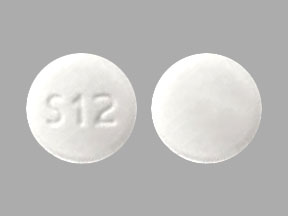Erlotinib Disease Interactions
There are 5 disease interactions with erlotinib.
EGFR inhibitors (applies to erlotinib) dermatologic toxicities
Major Potential Hazard, Moderate plausibility. Applicable conditions: Dermatitis - Drug-Induced
Cutaneous reactions, in some cases severe, have been reported with the use of EGFR inhibitors. Monitor patients who develop dermatologic or soft tissue toxicities while receiving these agents for the development of inflammatory or infectious sequelae. It is recommended to withhold treatment, and appropriate measures should be instituted as appropriate or discontinue the use of these agents for dermatologic or soft tissue toxicity associated with severe or life-threatening inflammatory or infectious complications. Advise patients to wear sunscreen and hats and limit sun exposure while receiving therapy with these agents as exposure to sunlight can exacerbate dermatologic toxicities.
EGFR inhibitors (applies to erlotinib) GI disorders
Major Potential Hazard, Moderate plausibility. Applicable conditions: Gastrointestinal Perforation, History - Peptic Ulcer, Diverticulitis
The use of some EGFR inhibitors may be associated with gastrointestinal perforation and fatal cases have been reported. Patients receiving concomitant anti-angiogenic agents, corticosteroids, NSAIDs, or taxane-based chemotherapy, or who have prior history of peptic ulceration or diverticular disease may be at increased risk of perforation. Permanently discontinue these agents in patients who develop gastrointestinal perforation.
EGFR inhibitors (applies to erlotinib) ocular disorders
Major Potential Hazard, Moderate plausibility. Applicable conditions: Ocular Infection
Some epidermal growth factor receptor (EGFR) inhibitors should be administered cautiously in patients with ocular disorders such as primary keratitis, ulcerative keratitis, or conjunctivitis. It is recommended to interrupt or discontinue treatment with these agents if patients present with acute or worsening ocular disorders.
EGFR inhibitors (applies to erlotinib) pulmonary toxicity
Major Potential Hazard, Moderate plausibility. Applicable conditions: Pulmonary Impairment, Fever
The use of certain EGFR inhibitors has been associated with pulmonary toxicity. Serious cases of interstitial lung disease (ILD), including fatal cases and interstitial pneumonitis or pulmonary fibrosis have been reported. Caution is recommended when using these agents in patients with a history of interstitial pneumonitis or pulmonary fibrosis or those patients presenting with acute onset of new or progressive unexplained pulmonary symptoms such as dyspnea, cough, and fever pending diagnostic evaluation. If ILD is confirmed, permanently discontinue these agents and institute appropriate measures.
Erlotinib (applies to erlotinib) hepatic/renal impairment
Major Potential Hazard, Moderate plausibility. Applicable conditions: Hyperkinetic Syndrome of Childhood, Liver Disease, Renal Dysfunction, Dehydration
The use of erlotinib has been associated with hepatotoxicity with or without hepatic impairment including hepatic failure and hepatorenal syndrome, in some cases with fatal outcomes. Patients with hepatic impairment (total bilirubin > upper limit of normal (ULN) or Child-Pugh A, B and C) should be closely monitored during therapy with erlotinib. Treatment with erlotinib should be used with extra caution in patients with total bilirubin > 3 x ULN. Clinical monitoring of hepatic function (transaminases, bilirubin, and alkaline phosphatase) is recommended during treatment and increase frequency of monitoring is required for patients with preexisting-existing hepatic impairment or biliary obstruction. In patients with preexisting-existing hepatic impairment or biliary obstruction with doubling of bilirubin or tripling of transaminases values over baseline, erlotinib therapy should be withhold and therapy should be discontinued in patients whose abnormal liver tests meeting the above criteria do not improve significantly or resolve within three weeks. Withhold erlotinib in patients developing severe renal impairment until renal toxicity is resolved. Monitor renal function and electrolytes, particularly in patients at risk of dehydration. Withhold erlotinib for severe renal toxicity.
Switch to professional interaction data
Erlotinib drug interactions
There are 308 drug interactions with erlotinib.
Erlotinib alcohol/food interactions
There are 2 alcohol/food interactions with erlotinib.
More about erlotinib
- erlotinib consumer information
- Check interactions
- Compare alternatives
- Pricing & coupons
- Reviews (45)
- Drug images
- Side effects
- Dosage information
- During pregnancy
- Drug class: EGFR inhibitors
- Breastfeeding
- En español
Related treatment guides
Drug Interaction Classification
| Highly clinically significant. Avoid combinations; the risk of the interaction outweighs the benefit. | |
| Moderately clinically significant. Usually avoid combinations; use it only under special circumstances. | |
| Minimally clinically significant. Minimize risk; assess risk and consider an alternative drug, take steps to circumvent the interaction risk and/or institute a monitoring plan. | |
| No interaction information available. |
See also:
Further information
Always consult your healthcare provider to ensure the information displayed on this page applies to your personal circumstances.


